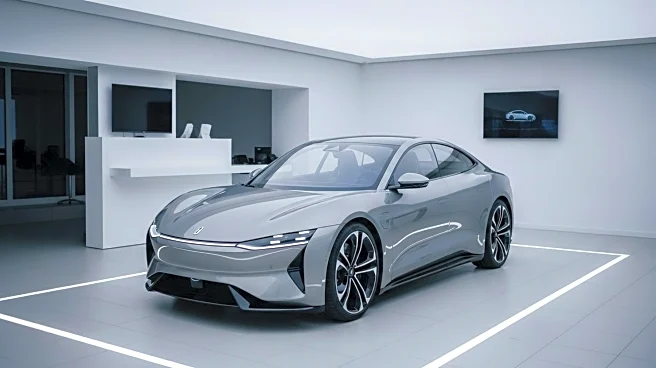What's Happening?
The IAA Mobility 2025 event, held under the theme 'It's all about mobility', showcased the European automotive industry's shift towards a software-based and service-centric business model. The event attracted 750 exhibitors and over 500,000 visitors, serving as a platform for automotive innovation in Europe. Key themes included artificial intelligence, software-defined vehicles, battery advancements, and cost competitiveness. Volkswagen Group Chief Executive Oliver Blume emphasized the importance of the event as a 'home game' for European players, particularly in light of China's growing influence in the automotive sector.
Why It's Important?
The IAA Mobility 2025 event underscores the European automotive industry's efforts to maintain its competitive edge in the face of increasing global competition, particularly from China. By focusing on software and service-centric models, European automakers aim to innovate and adapt to changing market demands. This shift is crucial for maintaining relevance and leadership in the global automotive market. The emphasis on AI and battery technology also highlights the industry's commitment to sustainability and technological advancement, which are key factors in future mobility solutions.
What's Next?
European automakers are likely to continue investing in software and service-based innovations to enhance their competitiveness. The focus on AI and battery technology suggests ongoing research and development efforts to improve vehicle efficiency and sustainability. As the global automotive landscape evolves, European companies may seek strategic partnerships and collaborations to strengthen their market position and address challenges posed by international competitors.
Beyond the Headlines
The shift towards software-defined vehicles and service-centric models may have broader implications for the automotive workforce, requiring new skills and expertise. This transition could lead to changes in employment patterns and necessitate retraining programs for workers. Additionally, the focus on sustainability and technological innovation aligns with broader environmental goals, potentially influencing regulatory policies and consumer preferences in the automotive sector.










